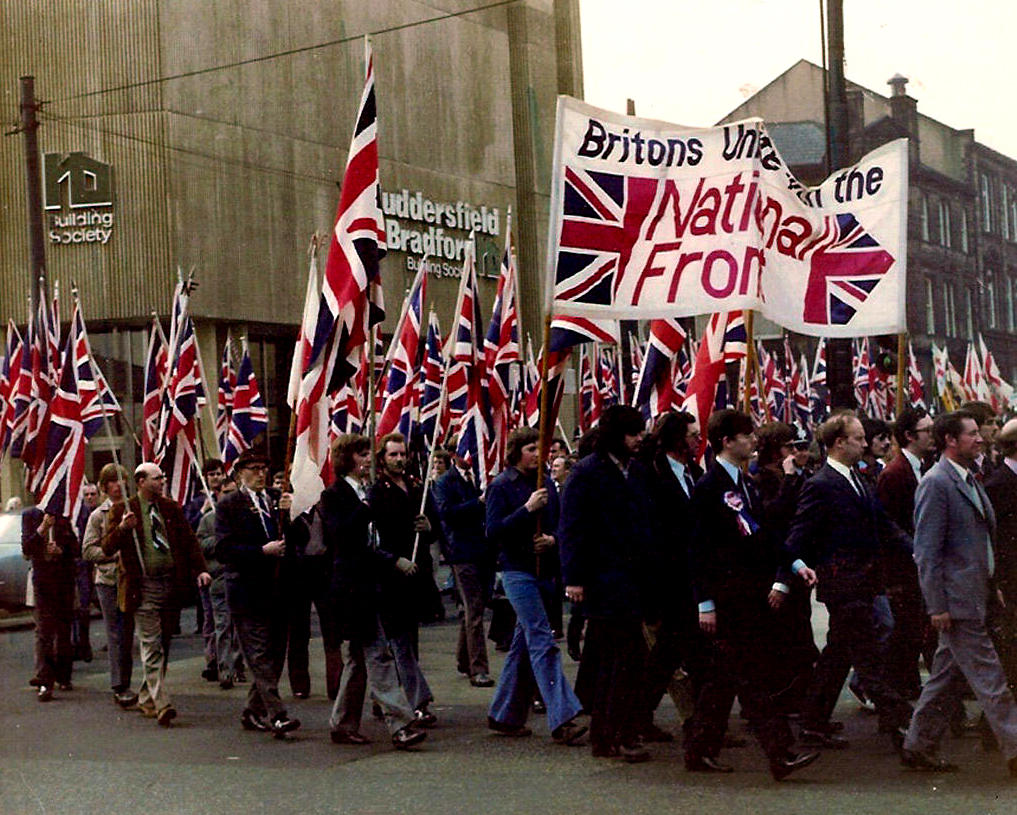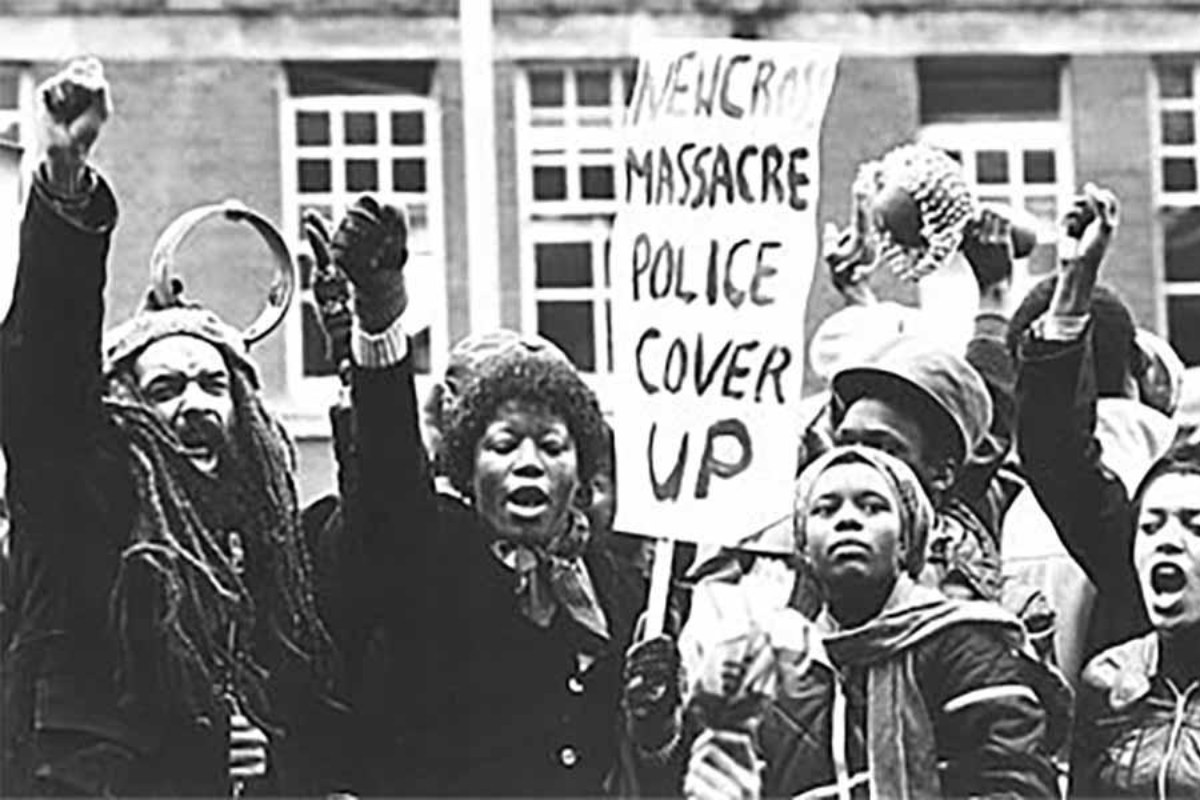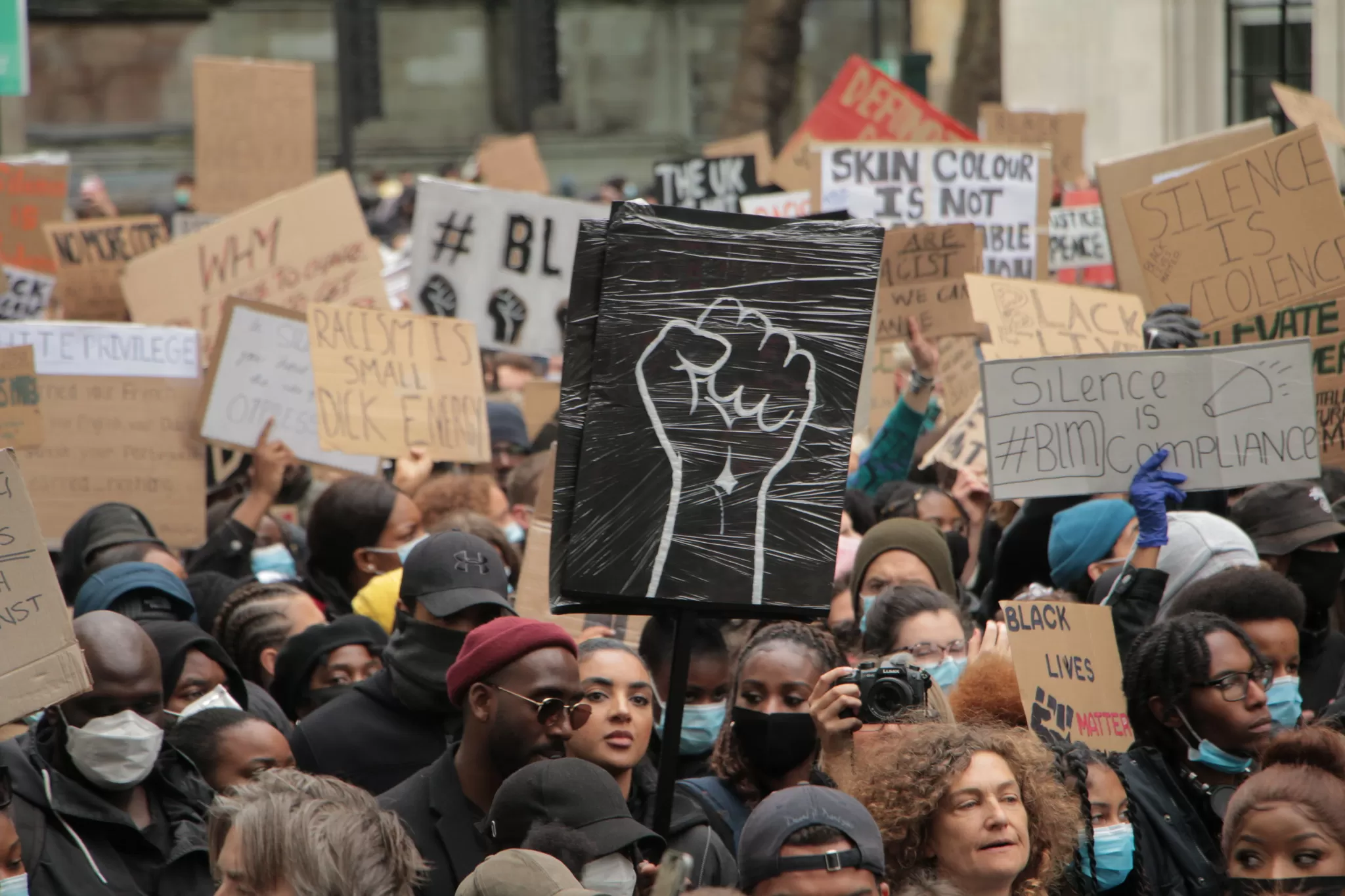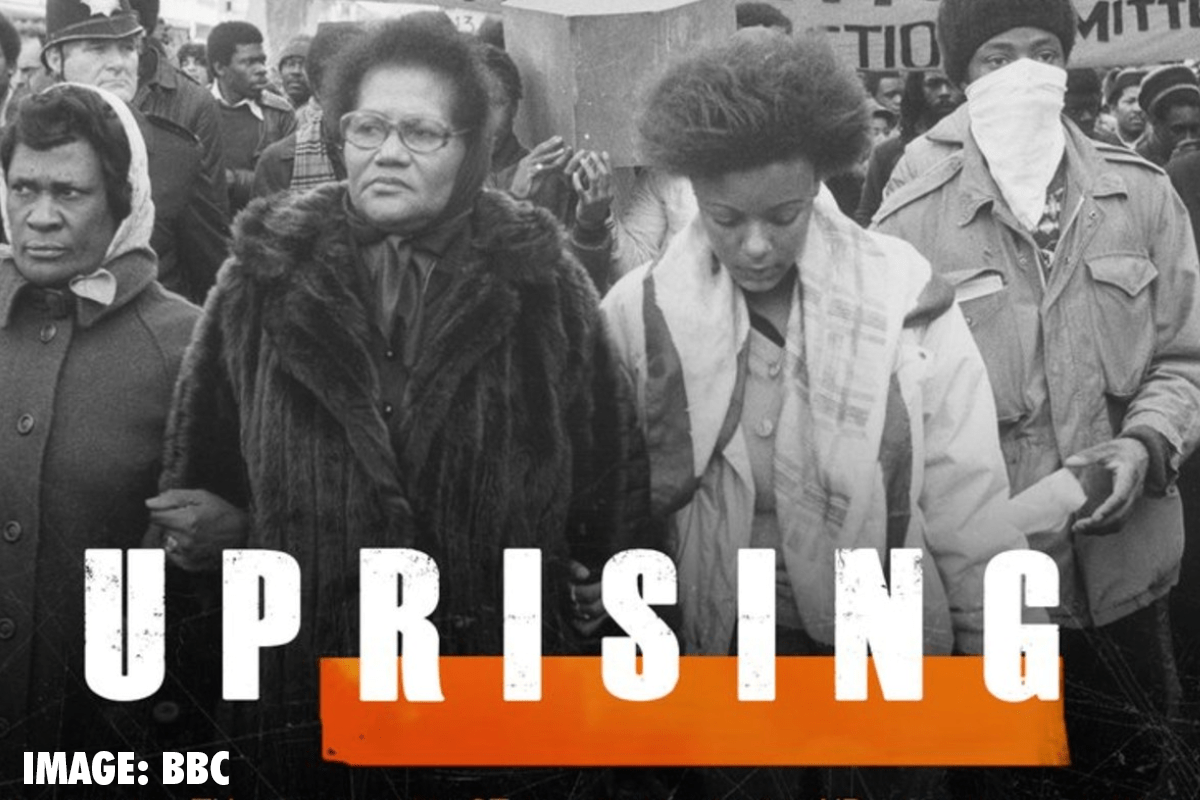Director Steve McQueen’s recent documentary into the 1981 New Cross fire shines a light on the racism inherent within the police force, whilst also pointing the way forward in the fight against racism today – through united class struggle.
On Saturday 17 January 1981, in south east London, thirteen young black people were killed – and dozens more injured – after a racist act of arson burned down the house where they were holding a birthday party. This would go on to be known as the New Cross house fire.
The events surrounding it have now been detailed in Steve McQueen’s recent documentary entitled Uprising, available to watch on BBC iPlayer.
Racism and fascism
 The documentary skillfully uncovers the real history of the New Cross house fire and surrounding events, through the perspective of those involved.
The documentary skillfully uncovers the real history of the New Cross house fire and surrounding events, through the perspective of those involved.
McQueen interviews victims of the fire; those who suffered racist abuse by the police and press; and activists who organised the Black People’s Day of Action.
In doing so, the acclaimed British director brings to light the degrading racism that black people suffered in the 1970s and beyond, and which created the conditions for the Brixton riots in the ‘80s.
Uprising shows how the bosses’ media was routinely used to rile up anti-black sentiment. They churned out imagery of young black men robbing white women, as part of a poisonous tactic to present black men in general as criminals.
The term ‘mugging’ in particular was referenced throughout. It is not dissimilar to Priti Patel’s use of the word ‘thugs’ when condemning BLM protestors.
On top of this was the threat of the National Front (NF). This was a fascist group, which asserted that the only solution to “the rising tide of race trouble” was for “a complete stop to all further coloured immigration and for total repatriation of [them] and their descendants”.
Black people routinely faced racist attacks from the NF and other far-right groups.
Apart from this general racist propaganda, McQueen also includes many young black people’s experiences with racism – particularly at the hands of the police.
One of the men interviewed recalls how he pointed out to a police officer that he was parked on a double yellow line. The police officer responded by slowly following him in his car while shouting racist obscenities.
The Battle of Lewisham
It is no wonder then that in 1977, when the police allowed the National Front to march through predominately black neighbourhoods, those living there would take matters into their own hands.
In what became known as the Battle of Lewisham, thousands of residents organised to defend themselves, their livelihoods, and their homes against the marching fascists. Clashes occurred between the 5,000-strong counter-demonstrators and the National Front, who were greatly outnumbered.
A quarter of the whole Metropolitan Police were brought in to Lewisham, who used riot shields for the first time in mainland Britain.
As part of the interviews in the documentary, a black police officer at the time recalls how another police officer had a National Front badge inside his raincoat, as well as the fact that many of the police were NF sympathisers in general.
The class nature of the police was exposed in this battle – encapsulated best by what activist John La Rose stated at the time: “If you were to arrange self-defence groups here, you can rest assured that the police would be attacking us…and not the fascists”.
Despite this inspiring show of strength against the fascists, racist attacks continued – for example, with the burning down of a youth centre and theatre where black people in the area would often go for entertainment.
All the while, individual acts of arson against black people continued with no arrests being made by the police.
New Cross house fire
 Perhaps the greatest show of the police’s true colours was in their investigation into the New Cross house fire.
Perhaps the greatest show of the police’s true colours was in their investigation into the New Cross house fire.
The police put forward their own narrative of ‘a fight’ at the party, which they claimed led to someone from within the household starting the fire. This was despite all witnesses saying that no such fight occurred.
The only ‘evidence’ of such a fight was through the police intimidating those questioned. One witness recalled how the police threatened to charge him with a crime for a different court case, unless he said what they wanted him to.
The bungling of the investigation led the families and others in the community to set up the New Cross Massacre Action Committee (NCMAC). They gathered statements themselves to piece together what happened on the night, as well as organising a march called the Black People’s Day of Action.
On the day of action, over 20,000 people marched through the streets of London. They shouted slogans such as “the people united will never be defeated”, and pointed at the offices of the Daily Express while chanting “racist”.
The Scarman report
In the aftermath of these events, racist police activity in the area was increased with what was called ‘Operation Swamp’. The name referenced how Thatcher said that Britain was being “swamped by people of a different culture”.
Many officers were being put onto the streets of Brixton with instructions to stop and search as many black people as they could.
The arrests made as part of Operation Swamp were what sparked the Brixton riots in April 1981. Riots soon spread to many other cities and areas, including Southall, Toxteth, and Woolwich, showing just how much this anger resonated in other black and working-class communities up-and-down Britain.
The ruling class realised that they had to take some action to try and quell these protests. This led to the Scarman report being released a few months later.
Given the class forces behind the writing of the report, it is unsurprising that its findings and recommendations were wholly unsatisfactory. It called for changes in police training and the recruitment of more ethnic minorities into the police force, whilst of course also denying the existence of ‘institutional racism’.
40 years on
Uprising ends with a summary of the second inquest granted to the families of the New Cross fire victims. The coroner still maintained that the fire was deliberately started inside the house, rather than by a petrol bomb like the NCMAC had determined.
It is clear that those involved in the fire are still suffering 40 years on, and that justice will not be served against the fascists that terrorised them and their community.
Today – as in the 1980s – there can be no faith in the police or the capitalist state to defend the lives and rights of the working class against racist violence.
The police, the courts, and the prison system exist to defend the status quo; to protect the power, profits, and privileges of the ruling class – the same ruling class that uses racism and bigotry to divide workers on the basis of their skin-colour.
This is why the police are an inherently racist institution – one that cannot be reformed.
Capitalism and racism
 The documentary demonstrates events that may be decades old, but which resonate strongly with working-class black people today.
The documentary demonstrates events that may be decades old, but which resonate strongly with working-class black people today.
A recent parliamentary report, for example, showed that disproportionate use of stop and search has increased over the last 20 years, since the famous Macpherson Report concluded that there was institutionalised racism within the police force.
When two black women were stabbed to death in London last June, the police response was both passive and contemptuous. It is alleged that some officers took selfies alongside the women’s bodies at the crime scene.
This culture of contempt runs straight through the Met – and 40 years of reports haven’t changed that.
Racism is an endemic and systemic symptom of capitalism. As a result, reforms like those in the Scarman report – which suggest tweaking the system here or there – will never be able to fully do away with racism.
The Battle of Lewisham demonstrates the forward in the fight against racism. We cannot rely on the police or the state, but only on the strength and power of a united working class.
It was on this basis that Marxists fought the National Front. And this is the heritage the labour movement must embrace in order to fight racism today.






